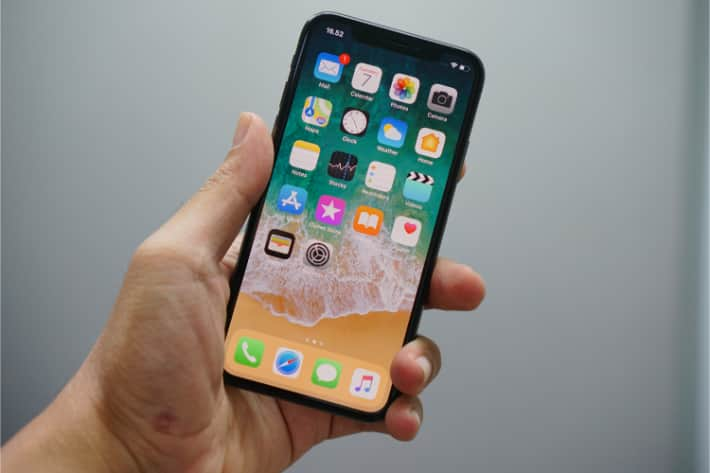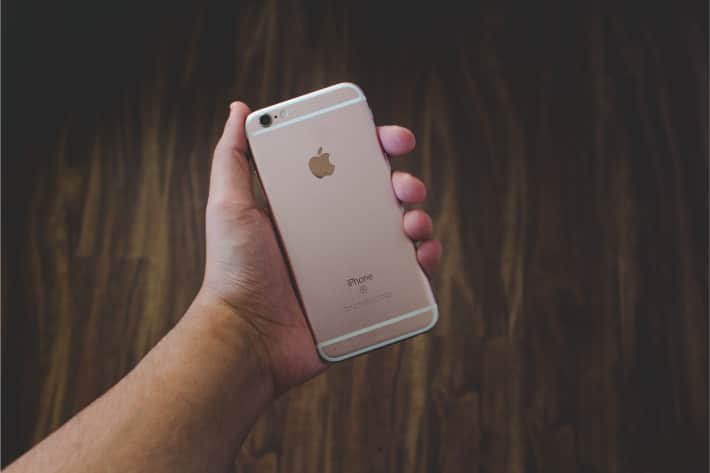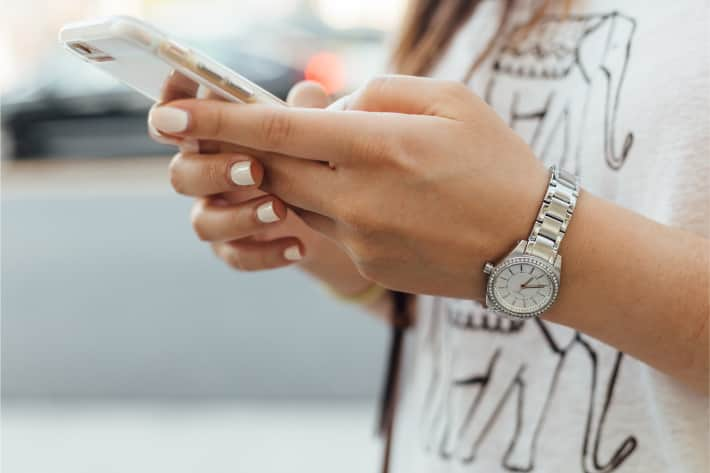How To Not Get Viruses On Iphone
Is your iPhone behaving badly? It could be a virus. Although iPhone viruses are rare, this popular make of phone is not completely immune. If you think your iPhone may have a virus, you are on the right page.
In this article we will look at:
- If and how iPhones can get viruses
- How to spot if your iPhone has a virus
- How to clear a virus from your iPhone
- How to protect your iPhone using Kaspersky Security Cloud for iOS
Can iPhones get viruses?
Fortunately for Apple fans, iPhone viruses are extremely rare, but not unheard of.
While generally secure, one of the ways iPhones may become vulnerable to viruses is when they are 'jailbroken'.
Jailbreaking an iPhone is a bit like unlocking it — but less legitimate. It involves obtaining root privileges which bypass the security restrictions that normally limit the operation of software on the device. Apple takes issue with jailbreaking and seeks to patch vulnerabilities in iPhones that allow it to happen.
The backstreet practice of jailbreaking iPhones gives users more control of the operating system. For example, the ability to customize how the system looks, delete pre-installed apps and download apps from places other than the App Store.
This may sound appealing but jailbreaking your iPhone may leave it less secure — there have been malicious programs that have affected jailbroken iPhones.
So, while the answer to the question "Can iPhones get viruses?" is 'generally not', iPhones have been known to get viruses, albeit rarely (and more likely if they have been jailbroken).
Learn more about other security threats iPhone users may face in our article Vulnerabilities in the iPhone.

Why are iPhone viruses so rare?
Viruses are malicious bits of computer code that replicate themselves. They spread throughout a system and may cause damage and delete or steal data.
In order to spread, a computer virus needs to be able to communicate with various programs that make up a system. However, the operating system that iPhone uses makes this difficult.
This is because Apple's operating system is designed so that each app runs in a separate, virtual space. Essentially, the interactions between apps are restricted, making it hard for a virus to spread.
Added to this, all apps that Apple users download have to be downloaded from the App Store and Apple has a strict vetting process for all its apps. So, it's incredibly unlikely for any malware infected apps to end up available for download.
Does your iPhone have a virus?
If your iPhone is behaving strangely, it is most likely because:
- There's a buggy app that needs updating or deleting
- Your phone is running out of memory space
- Your battery needs replacing
Only rarely is the problem caused by a virus. Nevertheless, it is wise to know what to look out for. To check if your iPhone may have a virus, answer these yes/no questions below:
- Have you jailbroken your device?
If your iPhone has been jailbroken, it is more vulnerable to viruses.
- Have you spotted apps you don't recognize?
Unfamiliar apps may be a sign of malware. Uninstall those you do not recognize.
- Are your apps repeatedly crashing?
When this happens for no reason it means your phone may be infected with malware.
- Has your data usage gone up?
Increased data usage that is not explained by you using your phone differently, may be caused by malware.
- Has your phone bill gone up?
Some malware sends messages to premium services. If you have an unexpectedly large bill, malware may be the reason.
- Are you seeing pop-ups when your browser is closed?
This should not happen if all is well with your iPhone. Pop-ups that appear when your browser is closed are a sign of malware.
- Is your battery draining quickly?
Malware can drain your battery. If you keep running out of charge your phone may be infected.
- Is your phone overheating?
If your phone is heating up more than usual, this may be a sign of malware activity.

How to remove a virus from your iPhone
Do you think your iPhone has be infected by a virus? If it is infected, here's how to clear a virus from your iPhone manually:
- Delete apps that look suspicious
Delete any apps that you do not recognize or that you downloaded around the time the problem started.
- Clear your data and history
Go to 'safari' within 'settings'. Tap 'clear history and website data.'
- Power off and restart
Hold down power and slide to turn off. Then hold down again to restart. This may fix the problem. If the problem remains, go to step 4 below.
- Restore your phone from a previous backup
Keep trying earlier backup versions until you find one that does not have the problem and is malware free.
- Restore factory settings
If all else fails, return your phone to factory settings making sure you back files up first. To do this, go to 'settings' > 'general' > 'reset' > 'erase all content and settings'.

How to protect your iPhone
You know how iPhones can get viruses, you know how to manually remove malware, but do you know how you can prevent your iPhone from malware in the first place?
Here are some key ways to keep your phone virus free:
Download Kaspersky Security Cloud for iOS
Protect your phone with Kaspersky Security Cloud for iOS. It provides vital security enhancements. For example, notifications about relevant security incidents and a tool that checks for weak system settings.
Only download apps from the App Store
Apple has a thorough vetting process. Downloading apps from the App store means they are highly unlikely to contain malware.
Check developer in descriptions on the App Store
It is always wise to read about who developed the app you are about to download in the description.
Read app user reviews
Always read app reviews from other users. Remember, that real reviews normally raise both good and bad points about products.
Check out the number of app downloads
Apps with millions of downloads are less likely to be malware.
Check permissions requested by the app
What permissions is the app requesting? Do they seem reasonable? If what is being asked for sounds suspicious, avoid downloading the app or remove it if you've already installed it.
Do not click on unverified links
Mark all spam emails as junk and avoid opening them. If you accidentally open a spam email, make sure you don't click on the links it contains.
Keep operating system updated
Update your operating system regularly. This ensures your phone is protected by Apple's latest security updates.
Keep apps updated
Update all your apps regularly: this will reduce the possibility of criminals exploiting vulnerabilities in apps to compromise your security.
Be mindful of using free Wi-Fi
Avoid online shopping and banking within public networks.
If you must use free Wi-Fi use a VPN connection like Kaspersky Secure Connection. This protects your connection by encrypting your data.
Why expose yourself to any risk? Protect your iPhone today. Download Kaspersky Security Cloud for iOS.
How To Not Get Viruses On Iphone
Source: https://www.kaspersky.com/resource-center/threats/can-iphones-get-viruses
Posted by: meyerscamonwarld.blogspot.com

0 Response to "How To Not Get Viruses On Iphone"
Post a Comment